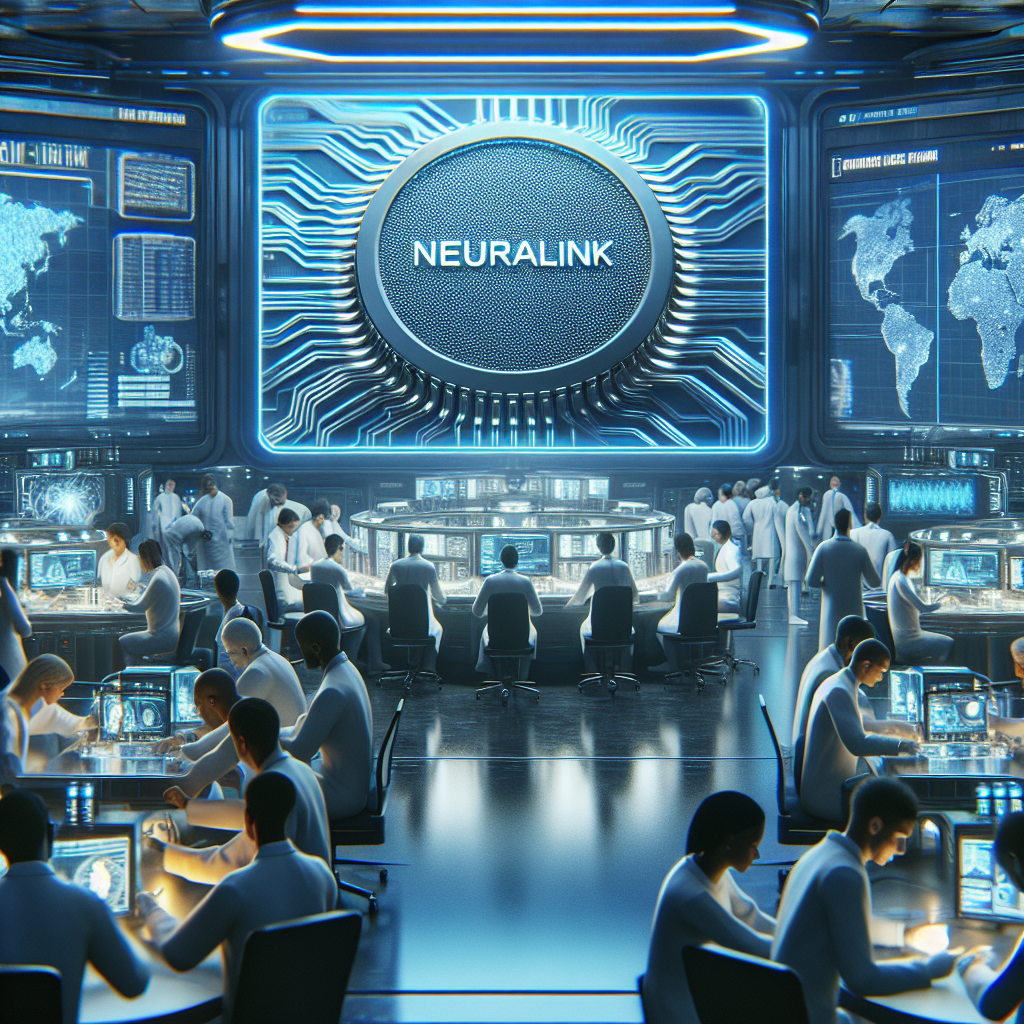Neuralink Seeks Global Patients for Brain Chip Trials
The race to merge technology with human cognition has gained significant momentum as Neuralink, the brain-computer interface company co-founded by Elon Musk, announces its search for global patients to participate in its clinical trials. This move marks a pivotal shift in the landscape of neuroscience and neurotechnology, potentially paving the way for groundbreaking advancements in treating neurological disorders.
The Vision Behind Neuralink
Founded in 2016, Neuralink’s mission is ambitious: to develop a brain-computer interface that can help people with severe neurological disorders and allow humans to communicate directly with computers. Musk has often emphasized the importance of enhancing human capabilities to keep pace with the rapid development of artificial intelligence.
Neuralink’s technology involves implanting ultra-thin threads directly into the brain, which can read electrical signals and, in the future, may even help in deciphering thoughts and commands. The possibilities this technology presents are immense, from restoring motor functions to enhancing cognitive abilities.
Current Progress and Future Aspirations
Neuralink has made significant strides since its inception, including successful animal trials and the demonstration of its chip’s potential in various conditions. However, the need for human trials is now more pressing than ever, as the company looks to transition from animal testing to human applications. Here are key points regarding this transition:
The Clinical Trials: What to Expect
Neuralink’s decision to seek global patients signals a new chapter in its journey toward FDA approval and subsequent commercial use. Here’s a closer look at what participants can expect during the trial phases:
1. Safety and Ethical Considerations
Neuralink ensures that patient safety is the top priority. The clinical trials are designed with stringent ethical standards and protocols to safeguard the well-being of participants. Comprehensive information will be provided about the potential risks and benefits of the procedure, including:
2. Recruitment Process
The recruitment process for these trials will involve several steps:
3. Potential Outcomes
The primary objective of these clinical trials is to determine the brain chip’s effectiveness in helping individuals with severe neurological conditions. The data collected could lead to substantial advancements in:
Impact on Society and Ethical Implications
Neuralink’s initiative to conduct brain chip trials presents not only a technological revolution but also a Pandora’s box of ethical questions. As we venture further into the realm of neurotechnology, society must address the following considerations:
1. Privacy Concerns
With technology increasingly capable of interfacing directly with the human brain, concerns about privacy and data security emerge. The potential for unauthorized access to thoughts or memories raises significant ethical dilemmas about consent and control.
2. Accessibility and Inequality
As with many technological advancements, there is a risk that neurotechnology could deepen societal inequalities. Ensuring equitable access to such groundbreaking treatments will be essential to prevent creating a divide between those who can afford enhancements and those who cannot.
Future of Brain-Computer Interfaces
The implications of Neuralink’s clinical trials extend far beyond the immediate benefits for participants. The outcomes could redefine how humanity interacts with technology in everyday life. Potential advancements could include:
Conclusion
Neuralink’s call for global patients to participate in its brain chip trials is a landmark moment in the evolution of neurotechnology. As the company ventures into this next phase of research, it brings with it the promise of a future where human cognition and technology may converge in unprecedented ways.
The excitement surrounding these trials is palpable, yet caution is warranted as society navigates the ethical landscape posed by such a profound technological leap. As we anticipate the results of these trials, there is a shared hope that Neuralink’s innovations will not only transform individual lives but also usher in a new frontier of possibilities for humanity at large.
Stay tuned as we follow Neuralink’s journey towards redefining the boundaries of human capability and the ethical implications that will shape our future.




